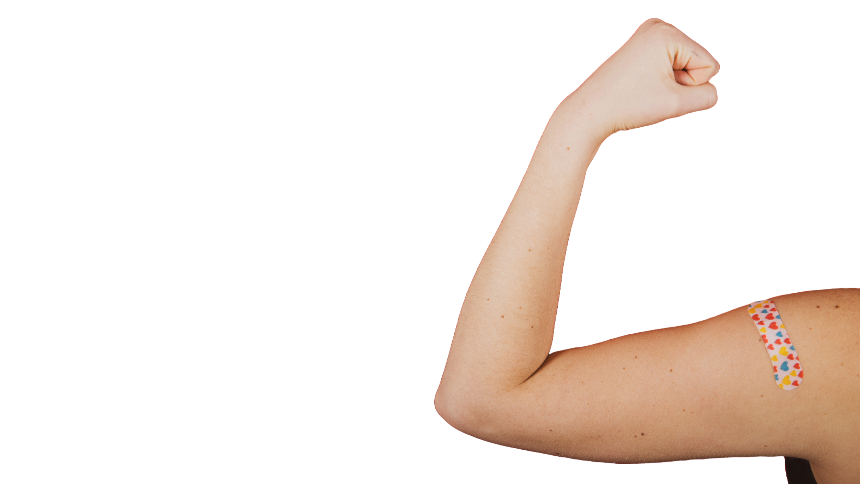01/08/2024
Find out how the HPV vaccine can protect you and your kids from HPV-related diseases, including cancer.
By Linus Chuang, MD, System Chair of Women’s Health Services, Nuvance Health
The U.S. Food and Drug Administration (FDA) has approved the human papillomavirus (HPV) vaccine for everyone ages nine to 45 years old, which means HPV protection is available to more people.
The HPV vaccine has proven to be highly effective at preventing HPV-related diseases and cancers. Yet, misconceptions still exist about how the HPV vaccine works, who should receive it and whether it is safe.
Here are seven myths and facts about HPV and the vaccine that parents and adults aged 45 and younger should know.
Myth #1: I/my child will not get HPV.
Fact: HPV is the most common sexually transmitted infection.
According to the U.S. Centers for Disease Control and Prevention (CDC), more than 42 million Americans have strains of HPV that cause other diseases, and about 13 million Americans get it each year — including adults and teens.
Myth #2: Having HPV does not mean I/my child will get cancer.
Fact: Having HPV increases cancer risk.
According to the CDC, HPV causes about 36,000 cases of cancer in men and women every year in the United States. Most HPV infections will go away by themselves within two years. However, some HPV infections last longer and can cause cervical, vaginal or vulva cancer in women; penile cancer in men; and anal and oropharyngeal cancer in men and women.
Related content: Screening tests for cervical cancer are super important. Here’s why.
Myth #3: The HPV vaccine is only for women.
Fact: Everyone should get the HPV vaccine.
HPV affects everyone. Partners can unknowingly transmit HPV to each other through sex because the virus oftentimes does not cause symptoms right away and many people are unaware that they have it.
Myth #4: The HPV vaccine is not effective.
Fact: The newest vaccine is effective against nine strains of HPV.
In 2006, when the FDA approved the original HPV vaccine, Gardasil, it protected against four types of HPV. In 2014, the FDA approved a new vaccine called Gardasil 9 that protects against the same four types of HPV plus an additional five types.
Research also shows that the HPV vaccine provided nearly 100% protection against persistent cervical infections with HPV types 16 and 18, plus the pre-cancers caused by those persistent infections.
Myth #5: The HPV vaccine is only for children and young adults.
Fact: Children and adults ages 9 to 45 can now get the HPV vaccine.
The FDA originally approved Gardasil and Gardasil 9 for nine to 26-year-olds. In 2018, the FDA expanded the age range for Gardasil 9 to include people ages 27 to 45. This expanded approval provides more opportunities to prevent HPV-related diseases and cancers in a broader age range.
Doctors recommend people get the HPV vaccine before they start having sex for it to be most effective. However, data now suggests that the vaccine also can benefit people after they are sexually active.
While most sexually active people have been exposed to some types of HPV, they likely have not been exposed to all nine types covered by the newest vaccine. Therefore, even if someone already has HPV, the vaccine may still help to reduce the risk of developing HPV-related diseases.
Myth #6: The HPV vaccine is not safe.
Fact: Extensive testing and research show that the HPV vaccine is safe.
The FDA closely monitors the safety and effectiveness of all vaccines before and after approval, and research shows that the HPV vaccine is safe. However, like any other vaccine or medication, some people may experience mild reactions or side effects to the HPV vaccine, such as fever, dizziness, fatigue, or pain, redness or swelling at the injection site.
Myth #7: The HPV vaccine encourages sexual promiscuity.
Fact: Research has shown no link between HPV vaccination and an increase in sexual activity.
Multiple studies have shown no increase in sexual activity after HPV vaccination. One study showed participants who received the HPV vaccine actually practiced safer sex than those who did not.
The bottom line: The HPV vaccine is a safe and effective way to reduce your or your child’s risk of developing an HPV-related health problem. Parents should ask their child’s pediatrician about the HPV vaccine — ideally before the child becomes sexually active. Adults aged 45 or younger who have not had the HPV vaccine and would like to learn more should talk with their primary care provider or gynecologist.
